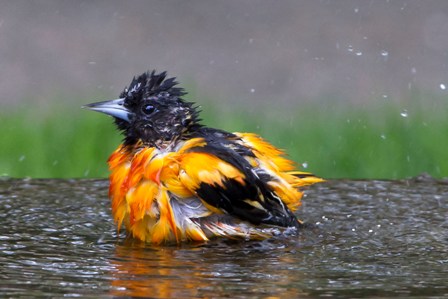 Excerpted from Sanctuary magazine
Excerpted from Sanctuary magazine
Beginning in March some of our best-known, most-loved migratory birds will arrive in Massachusetts as harbingers of spring. March is also the month when, 100 years ago, the Weeks-McLean Act, the precursor to the Migratory Bird Treaty Act of 1918, passed—the first legislation in the nation to place migrants under federal jurisdiction and prohibit their killing without the permission of the US government.
The pre-spring arrivals that can move freely and safely from state to state thanks to such early 19th-century advocacy initiatives—sandy-colored piping plovers to beaches, winsome red-winged blackbirds to marshland, and melodious song sparrows to yards and open spaces—are just representative of the many species that still benefit from the efforts begun by pioneering conservationists.
“The Weeks-McLean Act was the primary legislation protecting native birds in the United States,” says Mass Audubon’s Director of Public Policy & Government Relations Jack Clarke, “and one of the country’s earliest environmental laws.” Without these protections put into place at the outset of the 1900s, other avian species would undoubtedly have been subjected to the same fate as the passenger pigeon and Carolina parakeet, whose species no longer had representative wild individuals as of 1900 and 1904, respectively, leading ultimately to their extinction.
Mass Audubon was one the first players promoting legislation to save birds, so it was fitting that the Weeks-McLean Act had its origins in Massachusetts. In 1908, Charles H. Hudson, a farmer in Needham Heights, wrote to his Congressional representative, John Wingate Weeks, imploring him sponsor “a national law put on all kinds of birds in every State in the country, as the gunners are shooting our birds that Nature put here….”
Five years in the making, the 1913 bill, introduced by Representative John W. Weeks of Massachusetts and Senator George P. McLean of Connecticut—set the stage for bird national bird conservation on a scale that was necessary to change the path of history for the good of our priceless avian life.
Photo © Sandy Selesky


Great article! As you know, those events led directly to another milestone in 1916: the Migratory Bird Treaty. Mass Audubon and the Founding Mothers were such a critical part of that movement. If you want to share those stories this year as part of the commemoration, we are using the hastag #birdyear on social media. Send me an email if you want to talk more!